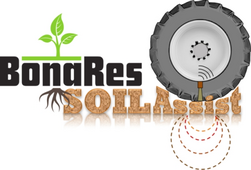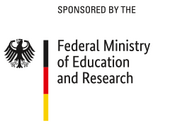Automation and optimization are becoming increasingly important in agricultural processes. In addition to improvements in efficiency, soil protection is gaining attention. The project SOILAssist-3 addresses both topics, in the context of the funding initiative “Soil as a Sustainable Resource for the Bioeconomy – BonaRes” of the BMBF. SOILAssist aims at the development of practically usable methods and tools for optimal field management strategies with a focus on soil protection.
In SOILAssist, the DFKI Laboratory Niedersachsen (research department Plan-Based Robot Control - PBR) develops an assistance system for agriculture machines. The assistance system includes a route planner for the machines participating in harvesting operations (harvester, transport vehicles) and an on-board graphical user interface (GUI) for the drivers. The route planning is performed based on the specifications of the selected machines, the field data provided by the environment representation, and the planning parameters set by the user. The planning is done in the spatio-temporal domain in order to coordinate the participating machines and takes into account soil models specific to the field, provided by the project partner University of Kiel, to generate routes that decrease the impact of driving on the soil based on the current state of the field. The on-board GUI enables the driver to set the process parameters and shows him/her process data and recommendations aiming to improve the soil protection during harvesting. The presented recommendations include the planned machine routes, as well as suggested actions based on machine-specific models provided by the project partner Thünen Institute.
The results of the first and second phases are extended in the follow-up project SOILAssist-3. The main DFKI tasks in the third phase are the extension of the route planner to support other headland types, and the implementation of on-line route (re) planning. The latter is done based on the semantic environment representation and on-line monitoring developed by the project partner University of Osnabrück.
The project's results will be made publicly available as modular, framework-independent open-source libraries.
Partners
- Johann Heinrich von Thünen-Institut (Inst. f. Agrartechnologie, Stabstelle Boden, Stabstelle Klimaschutz)
- Christian-Albrecht Universität zu Kiel (Lehrstuhl f. Physische Geographie)
- Universität Osnabrück (Lehrstuhl f. Informatik)


